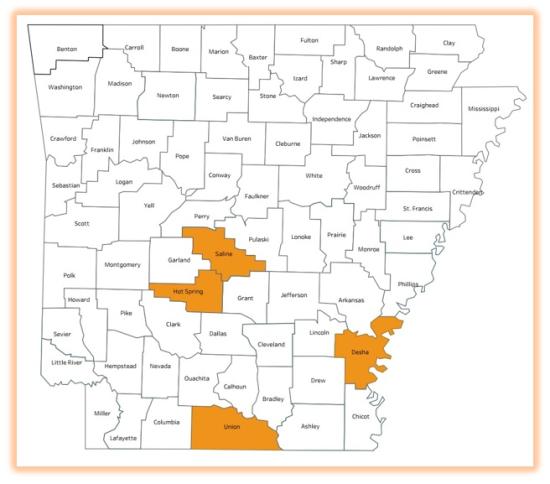HOPE and Swift Courts are involuntary, eighteen-month, multiphase intervention programs for adults in the criminal justice system at increased risk of reoffending. HOPE and Swift Courts are designed to reduce recidivism and manage the growth of the prison population through intensive supervision and the delivery of swift and certain sanctions. HOPE and Swift Courts attempt to reduce probation failure amongst high-risk, low-need defendants by concentrating on a small number of easily verifiable behaviors, including drug/alcohol use and reporting. The central tenet of HOPE and Swift Court is that swift and certain responses to violations, or sanctions, improve compliance.
HOPE and Swift Court aim to divert defendants from incarceration while strengthening accountability and compliance, thereby improving community safety and reducing criminal justice system costs.

HOPE and Swift Court Teams:
A dedicated multidisciplinary team of professionals manages the day-to-day operations of the HOPE or Swift Courts, including reviewing participant compliance, contributing observations and recommendations within team members' respective areas of expertise, and delivering or overseeing the delivery of legal and intensive supervision services.
The HOPE and Swift Court teams are comprised of representatives from partnering agencies involved in the program, which includes the following:
- Judge
- Program Coordinator
- Prosecuting Attorney
- Defense Attorney
- Juvenile Probation Officer
- Law Enforcement Liaison
Eligibility Criteria:
To be eligible for a HOPE or Swift Court:
- The person must be an adult;
- The person must be charged with a criminal offense;
- The defendant must be identified as high-risk, low-need, as determined by a validated risk-need assessment too;
- The defendant must be at high risk of being incarcerated due to failure to comply with the terms and conditions of probation; and
- The defendant must be approved for admission by the HOPE or Swift Court team.
HOPE and Swift Court Guidelines:
1. Utilize a validated risk-need assessment instrument as part of the identification process for eligible program participants.
2. Target defendants who are at high risk of being returned to incarceration
3. Notify defendants of program rules and consequences for violating rules.
4. Monitor defendants for illicit drug/alcohol use with regular and rapid result drug/alcohol screening.
5. Monitor defendants for violations, including failure to pay court-ordered financial obligations.
6. Respond to violations with immediate arrest and swift and certain modification of the conditions of probation, including the imposition of short jail stays.
7. Immediately respond to defendants who have absconded from supervision with service of bench warrants and immediate sanctions.
8. Provide rewards to defendants who comply with rules. Rewards may include reduced reporting requirements, less frequent drug testing, certificates of achievement, and other rewards determined locally.
9. Ensure funding for and referral to substance use treatment for defendants who repeatedly fail to refrain from illicit drug/alcohol use.
10. Establish procedures to terminate program participation by and initiate revocation to a term of incarceration for defendants who habitually fail to abide by program rules and pose a threat to public safety.
11. Conduct regular coordination of meetings for key partners of the program.
Program Effectiveness:
In a 2012 study of Arkansas HOPE and Swift Courts, the following findings were reported in a comparison of probation-as-usual (PAU) defendants:
- Arrests: 21% of HOPE/Swift probationers had a new arrest following placement on probation compared to 47% of PAU defendants.
- Drug Use: 13% of HOPE/Swift probationers tested positive for alcohol/drugs while on supervision compared to 46% of PAU defendants.
- Failure to Report: 9% of HOPE/Swift probationers missed required appointments compared to 23% of PAU defendants.
- Probation Revocation: 7% of HOPE/Swift probationers were revoked from probation compared to 15% of PAU defendants.
As a result, HOPE/Swift probationers served or were sentenced to 488% fewer days in jail or prison, on average, than PAU defendants.
HOPE and Swift Courts are subject to evaluation by the Specialty Court Program Advisory Committee under A.C.A. §16-10-139.